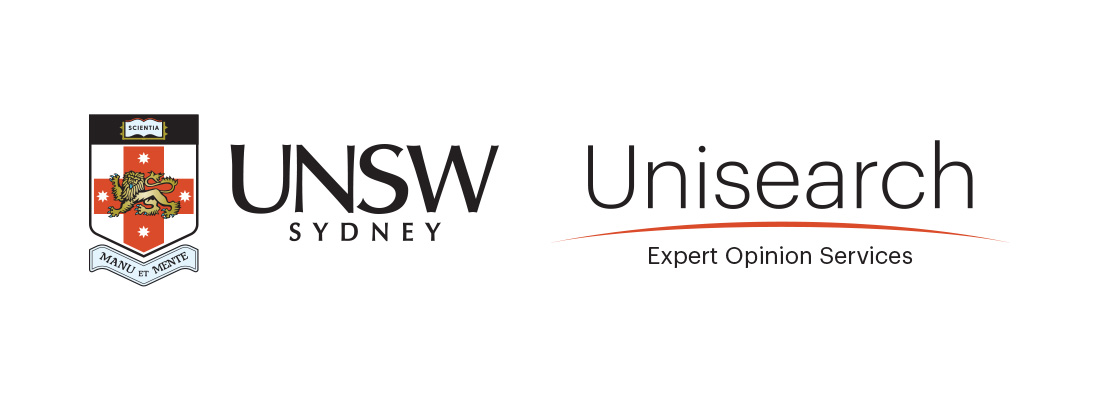

| NEWS | AIDA | DIARY | CONTACT | UNISEARCH | HOME |
No payroll tax on Unisearch experts' work By Chloe Burnett and Keni Josifoski On 21 December 2016, the Supreme Court of NSW found UNSW Global Pty Ltd was not liable for payroll tax on payments it made over five years to more than 600 consultants, both UNSW academics and external consultants. The consultants provided expert opinions and advice for litigious and non-litigious matters across a wide range of specialised disciplines to clients of UNSW Global's Unisearch business. The Chief Commissioner had assessed UNSW Global on the basis payments made to consultants were taxable wages for payroll tax purposes. In essence, he had analogised the services of Unisearch to those of a "labour hire firm". However, the court's decision emphasised the experts' independence and the fact that, as consultants, they run their own businesses and do not work "for" the business of a Unisearch client. On a literal construction of the provisions, the payments may well have been caught, but the court's reasoning highlights the importance of purposive statutory interpretation. The decision is final because the Chief Commissioner has decided not to appeal. Background The case covered 2007 to 2012. UNSW Global's consulting and expert opinion business traded as Unisearch and had several service lines, including expert opinion services, domestic consulting and international consulting services. Unisearch maintained a database of consultants to select from following a client inquiry. Its role was to act as an intermediary in providing independent consultants to clients, although, with the expert opinions service, Unisearch staff would assist the expert by arranging appointments, site visits and handling of evidence. Unisearch would also work with the expert to settle the report's format and ensure it was in admissible form and complied with provisions of the expert witness code of conduct. Justice Richard White found the consultants were not Unisearch employees and did not perform employee-like functions for Unisearch's clients. To the contrary, the reason the consultants were engaged was generally because they were independent and experts in their field. The consultants were free to determine the manner in which they completed their assignments. They were not engaged to work for the general purposes of the ultimate client's business; they used their own tools and equipment in providing their opinions and advice; were required to make provision for superannuation, income tax and workers' compensation insurance; and were not entitled to sick leave or long service leave. The consultants bore the commercial risk and were responsible for any substandard work. Legislative framework Section 37(1) of the Payroll Tax Act 2007 (NSW) provides: For the purposes of this Act, an employment agency contract is a contract, whether formal or informal and whether express or implied, under which a person (an employment agent) procures the services of another person (a service provider) for a client of the employment agent. In 1985, an employment agency rule was first introduced into the Payroll Tax Act 1971 (NSW). The second reading speech from 1985 said "[t]his Bill includes a number of anti-avoidance measures which will catch schemes using contractors and employment agents to avoid liability for payroll tax" and that "bona fide independent contractors [would] not be caught by this legislation". The mischief appears to have been the interposition of intermediaries between employee-like workers and an ultimate client for the purpose of avoiding payroll tax. The decision Justice White accepted UNSW Global's contention the Chief Commissioner's construction of the employment agent provisions was overly literal and gave rise to an operation that, without regard to the context of the provisions or Parliament's intention, was absurd. Justice White said: "This is not a case in which a literal construction fails to address the mischief that Parliament was concerned to address, but rather a case in which the literal words used to address that mischief go far beyond the mischief intended to be addressed. "To the extent the text of the legislation permits ... the provisions should be construed so as not to apply to all arrangements that could fall within their literal terms, but should be construed in accordance with the legislative intent as ascertained from the statutory context, including the juxtaposition of the employment agency contract provisions with the relevant contract provisions, the legislative history, and the extrinsic materials. This may mean the legal meaning to be given to the provisions differs from their literal meaning." The Chief Commissioner also accepted that a literal interpretation of the employment agent provisions would anomalously tax indirect arrangements that would not have been taxed if they had been entered into directly - ie because the relevant individuals were, in substance, independent contractors. After considering the legislative history and the mischief the employment agent provisions sought to negate, Justice White said those provisions applied to a contract under which an employment agent "procures the services of another ... for a client of the employment agent" in and for the conduct of the business of the employment agent's client. "For" a client requires that the employment agent "procures the services of another person in and for the conduct of the business of the employment agent's client". That is, the individual must be "serving the same function for the client as its employees". That was clearly not the case with the Unisearch experts and consultants, who act as independent contractors when providing expert opinion and other consulting services to clients of Unisearch. |
Resolve is the official publication of the Australian Insurance Law Association and
the New Zealand Insurance Law Association.

